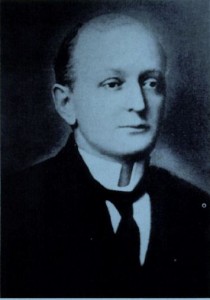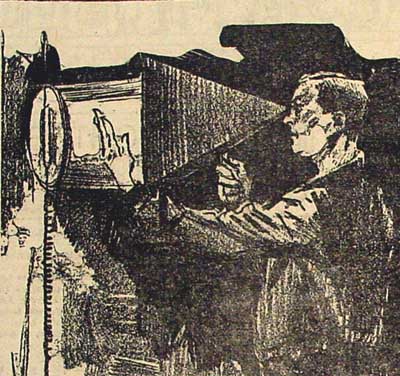We appreciate the pioneering spirit but sometimes in retrospect discount the costs. The experiences of Clarence M. Dally, a former military man and glassblower who worked as Thomas Edison’s point person on the development of X-rays, serve as a cautionary tale. From an article in the October 4, 1904 New York Times:
“EAST ORANGE–Clarence M. Dally, electrical engineer, died yesterday at his home 108 Clinton Street North, East Orange, a martyr to science, the beginning of his illness having been due to his experimental work in connection with the Roentgen rays. For seven years he patiently bore terrible suffering and underwent seven operations, which finally culminated in the amputation of both his arms.
During the experimental work on the X-rays Mr. Dally was Thomas A. Edison’s chief assistant. Mr. Edison himself was slightly burned with the chemicals, but Mr. Dally, who had almost all of the experimenting to do, was quite badly burned on his hands. He suffered no pain from these burns, but his hands looked as though they had been scalded.
Six months after the first indications appeared the hands began to swell, and Mr. Dally was unable to keep at work continuously, but went to many of the hospitals where the X-ray was being installed and set up the machines and did some work in the laboratory besides. He suffered in this way for two years, when he and his family went West.
 Cancer finally developed on the left wrist, and he came East for treatment. An operation was performed, but not successfully.
Cancer finally developed on the left wrist, and he came East for treatment. An operation was performed, but not successfully.
The disease then steadily spread and Dally was taken to the New York Post-Graduate Hospital, where the affected arm was amputated four inches below the shoulder. For a time an improvement was apparent, but the little finger on the right arm became affected, and on Nov. 1902, this member was taken off at his home.
Three other fingers were removed on June 16, 1903. The development of a spot on the wrist made it necessary to perform another operation on Sept. 7 of the same year. On Nov. 18 the physicians performed another operation where the stump of the little finger remained. Later the right arm was amputated.
A pair of artificial arms was provided for him, but he used them only a week when he was obliged to succumb, the disease having affected his entire system. During the seven years he had been unable to care for himself, and all the time he was West he was obliged to rest his hands in water during the night to allay the terrible burning sensation.”

